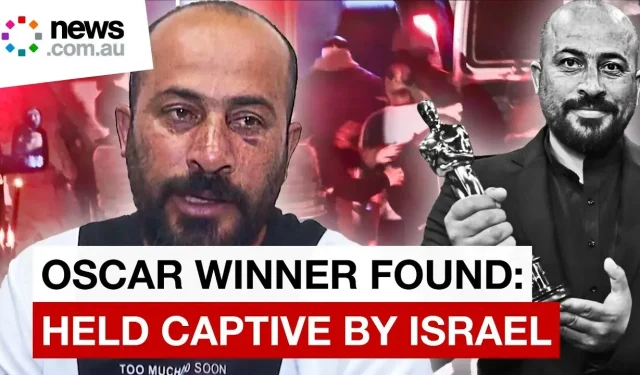Hamdan Ballal, a co-director of the Oscar-winning documentary “No Other Land,” has been released from detention a day after he was injured and arrested during an Israeli settler raid in his village, Susiya, located in the occupied West Bank.
Background on the Incident
Ballal was part of a group of three Palestinians detained during the raid on Susiya, with local police reporting that they were being held at a military base for medical attention. This incident has drawn international attention given the filmmakers’ recent success at the Oscars, where their documentary won the prestigious Best Documentary award.
Filmmakers’ Concerns
Basel Adra, another co-director of “No Other Land,” voiced concerns regarding the targeting of the filmmakers since returning from the Oscars. Adra expressed his belief that the attacks on them could be retaliation for the film, stating, “We came back from the Oscars and every day since there is an attack on us. This might be their revenge on us for making the movie. It feels like a punishment.”
“No Other Land”: An Overview
The documentary “No Other Land” was created by a Palestinian-Israeli collective, focusing on a community in the West Bank that has been resisting forced displacement. The film, completed between 2019 and 2023, has received critical acclaim for its portrayal of the Israeli-Palestinian conflict and was recognized at the Oscars during the ceremony held on March 2, 2025.
Reactions and Impact
The release of Ballal has sparked discussions about the ongoing violence experienced by Palestinian filmmakers and the implications of their work in documenting and portraying the complex historical narratives of their communities. There were cheers from the audience during the Oscars when the filmmakers called for peace, reflecting the global audience’s support for their message amid the backdrop of conflict.
Potential Consequences
This incident raises concerns about the future of artistic expression and the safety of creators in conflict zones. The targeting of artists and filmmakers may deter others from documenting similar stories, which is critical for global awareness and understanding of the Israeli-Palestinian conflict. With tensions high, the filmmakers’ situation may also influence international discussions regarding human rights and freedom of expression.


